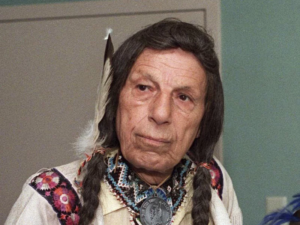When two men were found hanging from trees in Southern California, the authorities quickly ruled them suicides. After an outcry from activists, investigations were opened.
A large American flag fluttered over a memorial for Robert Fuller, who was found hanging from this tree in front of Palmdale’s City Hall on June 10.Credit…Bryan Denton for The New York Times
- Published June 19, 2020Updated June 20, 2020, 4:33 p.m. ET
PALMDALE, Calif. — Poncitlan Square in the center of this high desert city is a tidy expanse of green lawn with a gazebo and a fountain. On one side is City Hall, on the other, a fire station. There is a cafe and the Whispering Palms Apartments. This time last year, for the first time, it was filled with revelers celebrating Juneteenth, the annual holiday to mark the end of slavery.
Today, it is a place of mourning, anger and suspicion after a black man was found dead in the park, in the early hours of the day, hanging from a tree.
Now, the grass around the Chinese Pistache tree is buried under balloons, candles, flowers and photographs of the man, Robert Fuller, one in his cap-and-gown, another with his sisters. A giant American flag flies overhead, as people gather around the tree, absorbed in despair for another black life lost.
The Los Angeles Sheriff’s Department first ruled the case a suicide. But it quickly shifted course by vowing a full investigation, a reaction in part to the protests, here and across the country, against police violence and racism.
“Black people don’t do that,” said Terry L. Scott, a realtor from Los Angeles, about an hour’s drive west, expressing a sentiment shared by many in Palmdale. “They don’t hang themselves from a tree in a public park.”
As tensions across the country grow in the wake of the killing of George Floyd, this desert region east of Los Angeles has been shaken not just by the death of Mr. Fuller but by a second, similar case, in nearby Victorville, where a black man was found dead, tied to a tree branch with a computer cord around his neck.
That case, too, was first considered a suicide, and officials in both cases say there is no sign of foul play. But now, in response to pleas from activists and family members, the local authorities are promising full investigations. And in a sign of the mistrust between the black community and law enforcement in the two cities, the F.B.I. is monitoring the inquiries, as are investigators with the state’s attorney general’s office.
Image A makeshift memorial for Malcolm Harsch at the site in the homeless encampment where he was found hanging by his neck from a small tree in Victorville.Credit…Bryan Denton for The New York Times
A makeshift memorial for Malcolm Harsch at the site in the homeless encampment where he was found hanging by his neck from a small tree in Victorville.Credit…Bryan Denton for The New York Times
Taken together, the cases highlight not only the moment America finds itself in but also the long and well-documented history in Southern California of racial discrimination, police abuses and the lingering presence of white supremacist groups.
Emotions were already raw over the killing of Mr. Floyd and the unrest it provoked, not to mention the accumulated grievances here over years of police abuses. Now, the potent symbolism of black men hanging from trees has put this city on edge — the atmosphere within the black community is a “powder keg,” one local pastor said — causing many to question law enforcement’s handling of the cases.
“I think it was a rush to judgment,” said Jamon R. Hicks, a Los Angeles civil rights lawyer hired by Mr. Fuller’s family who is working to arrange an independent autopsy. “What’s so disturbing about that is there’s this history they didn’t consider. My first thought would not be a suicide. My first thought is, this is a modern-day lynching.”
There have been at least three other hangings in public places in recent days that were ruled suicides, in Texas and New York City, sparking anguish and questions. A black teenager was found dead near an elementary school in Spring, Texas. A Hispanic man was found dead in Houston. And a black man was found dead in a tree in a Manhattan park.
Officials in all these cases said there was no evidence they were not suicides. Nevertheless, the deaths have drawn attention on social media, with activists expressing fears they could be signs of a backlash against the Black Lives Matter movement, and others calling for federal investigations.
In Northern California several nooses were found recently on five trees in a popular park in Oakland, prompting the F.B.I. to open a hate crimes investigation, even as some claimed the ropes were simply exercise equipment.
Mayor Libby Schaaf of Oakland said that the intent of whoever put the ropes in the trees will be relevant to the criminal investigation, while acknowledging the potent symbolism.
“What a privilege for those of us that don’t feel complete fear and terror when we see a rope in a tree,” she said at a news conference on Wednesday. “That is a privilege that so many of our African-American residents do not enjoy.”
In Victorville, a city 50 miles east of Palmdale in San Bernardino County, residents gathered this week to demand the police investigate the death of Malcolm Harsch, 38, a homeless man who was living in a tent when his body was found hanging from a tree on May 31, 10 days before Mr. Fuller’s death.
Protesters called for justice for Malcolm Harsch and an end to police violence in front of the Victorville City Hall, Tuesday.Credit…Bryan Denton for The New York Times
According to a social worker briefed on the investigation by the San Bernardino Sheriff’s Department, Mr. Harsch’s body had no wounds to suggest he was attacked. The cable left one deep mark around his neck, typical of suicides, rather than several marks to indicate Mr. Harsch had struggled to free himself of the makeshift noose.
But many residents are angered that the police were quick to judge the death a suicide and did not perform an autopsy until 12 days after the body was found. And his death was not announced until nearly two weeks later, they say, only after media scrutiny of the death of Mr. Fuller was brought to light. In both cases, police have not made public any suicide notes.
The families of both Mr. Harsch and Mr. Fuller cast doubt that their loved ones’ deaths were suicides. But on Saturday, Mr. Harsch’s family said through a spokesman that after reviewing footage provided by the Victorville police, his death was, in fact, a suicide.
At a recent rally in Palmdale, Diamond Alexander, Mr. Fuller’s sister, who lives in Arizona, said, “my brother was not suicidal. He wasn’t.”
Karmen Smith, a mental health therapist, was so moved by the death of Mr. Fuller — who attended a local high school, loved basketball and was described as outgoing and funny — that she drove from Las Vegas to see the town square.
She said she could not believe a black man would hang himself on a tree in a public park, given the history in America of lynching.
When Ms. Smith walked into the park on Tuesday morning, she said, “I just screamed. I was just so outraged and saddened.”
Los Angeles County officials have now said they are searching for any video footage from the area around the park, and are analyzing the rope from Mr. Fuller’s case.
At the square in Palmdale, there is no escaping the backdrop of a nation at war with itself, as it grapples with a painful history. One man displayed old photographs of black men being lynched in America. Others spoke of the region’s own troubles — of housing discrimination, racial profiling, the presence of neo-Nazi groups, being taunted by racial slurs — and passed out fliers about the next-door town titled, “a brief overview of Lancaster’s racist history.”
The region was once predominantly white and expanded during World War II as the growing aerospace industry attracted families. In recent decades, the demographics have been shifting, as black and Latino residents fled Los Angeles in search of more affordable homes. This migration intensified racial tensions, residents say.
“I moved here 10 years ago from Compton,” said Aleka Jackson, 48, a teacher, who lives in Victorville. “I wanted to raise my children in a place that would be safer. But when you change location, you change your issues. I traded gang culture for racism.”
Many black and Latino residents who moved to the region were low-income, using housing vouchers from the federal Section 8 program.
This provoked an organized effort by the local authorities, in partnership with the Sheriff’s Department, to target low-income residents for eviction, according to federal investigators who found a pattern of abusive police practices against African-Americans in 2013. The investigation resulted in a consent decree and federal monitoring.
“I feel like black lives have remained vulnerable out here,” said Christian D. Green, a local pastor and adjunct professor of African-American history at several community colleges.
A makeshift memorial for Malcolm Harsch in Victorville, Calif.Credit…Bryan Denton for The New York Times
The day after Mr. Fuller was found dead, a sheriff’s deputy shot and killed a black man in his home in Lancaster following a domestic dispute. The sheriff’s department said the man, Michael Thomas, had reached for a deputy’s gun before being killed, a claim the man’s fiancée disputed, according to news reports.
Pastor Jacob D.R. Johnson of Growing Valley Baptist Church, a predominantly African-American congregation in Lancaster, said he hasn’t been able to bring himself to visit the park where Mr. Fuller was found dead. “I’ve had a hard time sleeping,” he said.
Mr. Johnson, the vice president of the local chapter of the N.A.A.C.P., like other black leaders here, are preparing themselves for the possibility that Mr. Fuller was murdered, and what the reaction might be on the streets.
“We’re really saying, we’re not going to be quick to judge,” he said. “Wisdom cries out, wait.”
He is haunted by the racism in the region, whether it be painted swastikas popping up or, in a recent case that made news, a widely circulated photograph of teachers holding a noose.
“Hate crimes are not inconceivable,” he said.
Until there are answers, he added, “we are asking people to keep their families close.”
Tim Arango reported from Palmdale, Calif., and Maria Abi-Habib from Victorville, Calif. Thomas Fuller contributed reporting from Oakland, Calif.




